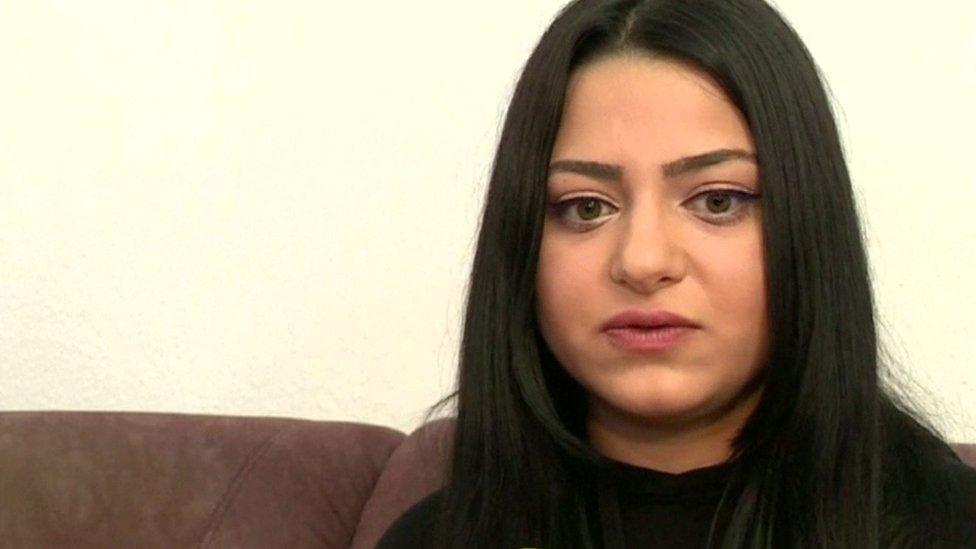Cologne police 'right to target North Africans' at new year
- Published
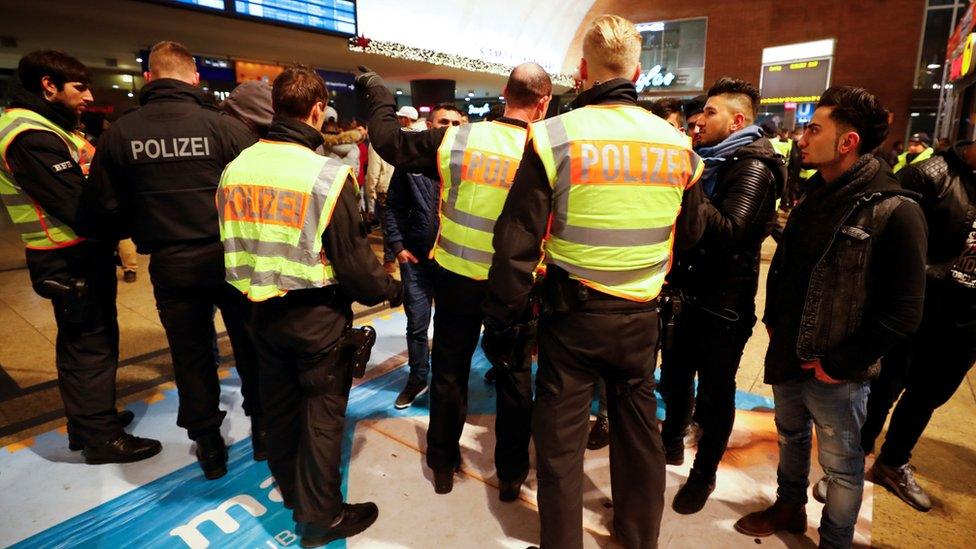
There was a heavy police presence at Cologne's main railway station for new year
German police say they were right to question hundreds of men of North African origin in Cologne on New Year's Eve, rejecting criticism that it amounted to racial profiling.
Police numbers were boosted and North Africans were targeted, after hundreds of sexual assaults on women marred new year celebrations a year ago.
The city's police chief said about 650 North African men were checked because some of them were acting aggressively.
Some politicians criticised the policy.
A year ago police received hundreds of complaints from German women who said they had been robbed or sexually assaulted by men mostly of North African or Arab origin on New Year's Eve.
Most of the attacks happened in and around Cologne's main railway station, near the cathedral.
Mohamed Madi reports on the New Year’s Eve celebrations in Cologne
On Sunday city police chief Juergen Mathies said: "Overall, we checked the identities of 650 people of whom, based on police officers' assessments, around 98 to 99 per cent - almost all of them - were from North Africa."
He said the mass questioning of North Africans happened "because we recognised corresponding aggressive behaviour amongst them".
Police said 92 people were detained, including 16 ethnic Germans.
During the night, police numbers were boosted to 1,700 for the event in central Cologne, and fireworks were banned from the vicinity of the cathedral.
A reporter for Germany's Tagesschau TV news programme said security in the area was so tight that the atmosphere did not feel very festive.
Very few suspects were caught after last year's assaults. They mostly took place among crowds, under cover of darkness.
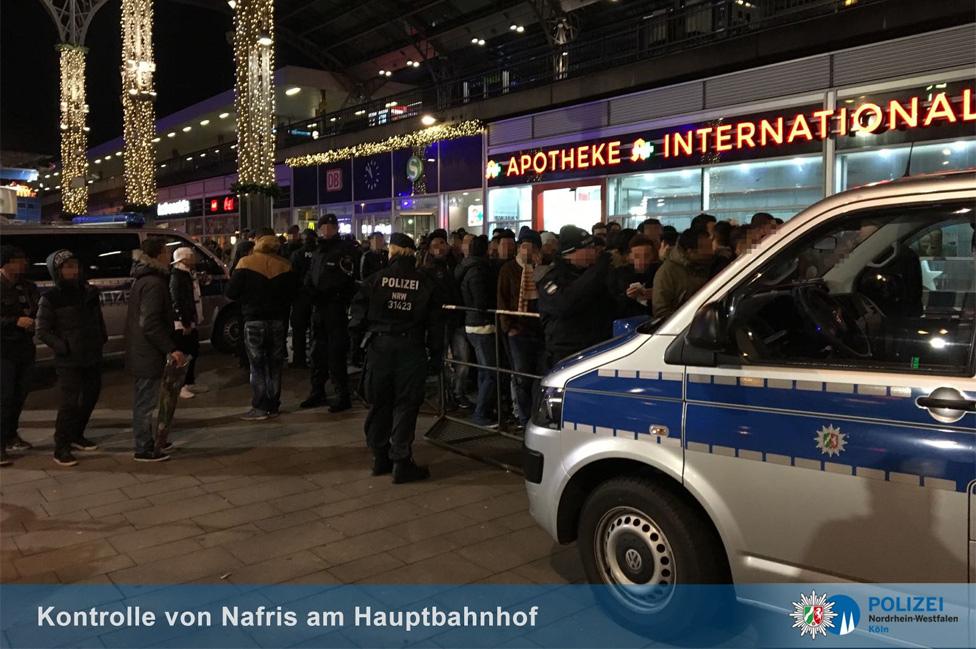
Police image with caption: "Checking of Nafris at the main railway station"
Mr Mathies apologised for a police tweet, external which referred to checks on "Nafris" - a police abbreviation for "North African offenders".
Both the left-wing Linke party and Greens leader Simone Peter condemned the term "Nafris" as derogatory.
Ms Peter said the large police deployment had prevented many sexual assaults.
But she added: "There is a question mark about behaviour and legality when some 1,000 people are checked and in some cases detained solely because of their appearance."
- Published24 February 2016
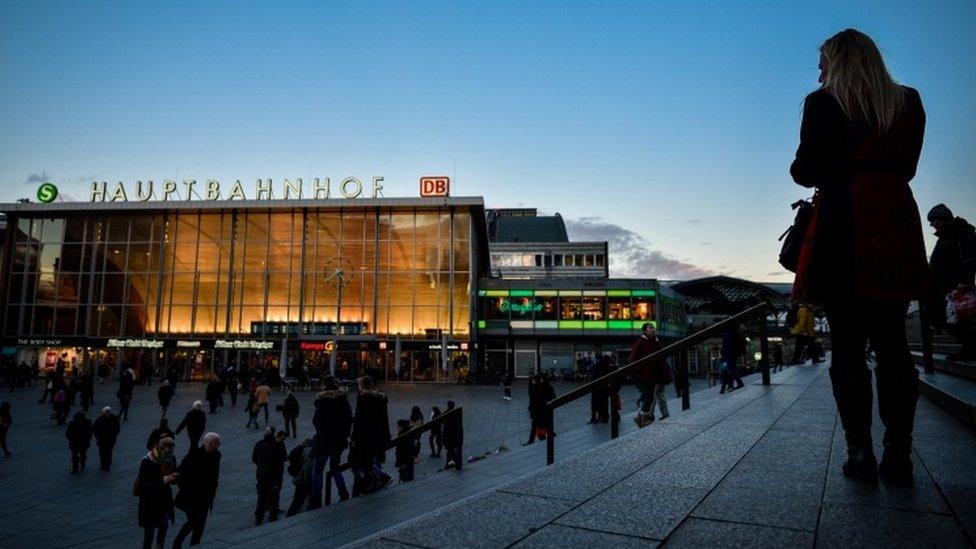
- Published11 January 2016
- Published10 January 2016
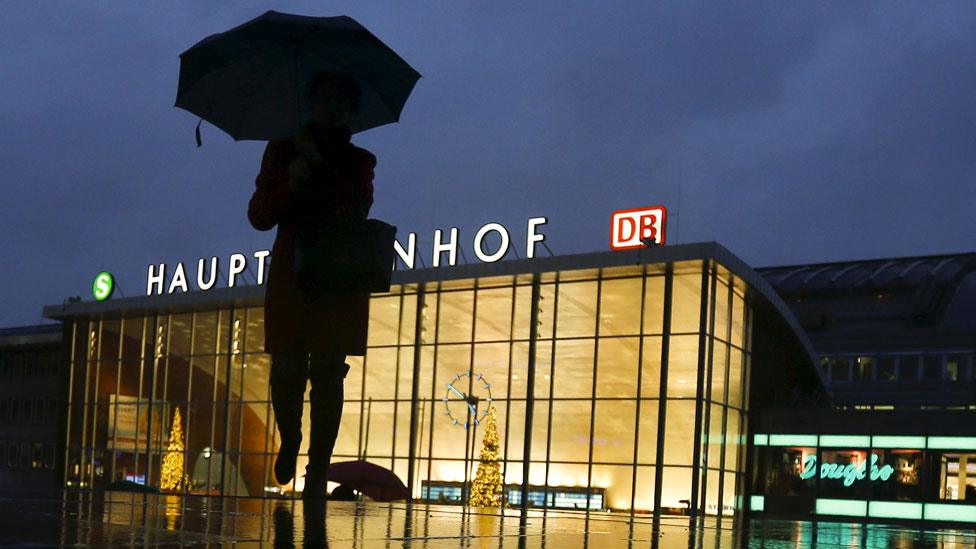
- Published7 January 2016
